Stealth camping is getting more and more popular in Australia, but there are some things you need to be aware of if you choose to do it.
I will start off by saying that I myself have never stealth camped. This is simply because I do not have the correct set up to even try and because I do not spend a lot of time camping in towns or cities. This blog has information which I have gathered from other travellers and through research.
Table of Contents
What is Stealth Camping?
Stealth camping is exactly what it sounds like. Camping in areas which aren’t designated camping spots, and trying to be as desecrate as possible. This might involve parking in a parking lot or on a quiet street.
If I’m being honest stealth camping in Australia is quite difficult, although not impossible. Another thing to note is stealth camping in Australia is actually illegal and you can cop a hefty fine if you are caught. This doesn’t mean people don’t do it and I am not suggesting or condoning that you try stealth camping yourself.
If you choose to stealth camp – that is completely your choice.
Difference between Stealth (Wild) and Free Camping?
It’s important to note that stealth camping and free camping are two completely different things.
Free camping means you are setting up your campsite in a designated camping spot, which is free. This means you can fully set up camping without the worry of being fined or told to move. These campsites sometimes have bathrooms and BBQ’s or no amenities at all (make sure you clean up after yourself). You can find these campsites using apps such as WikiCamps or Campermate. Another thing to note is some states have more free camps then others.
You can read my guide to finding cheap campsites in Australia, here.
A lot of free camping spots might consist of rest stops, which can usually be found on the main roads website for each state, as well as the apps mentioned above.
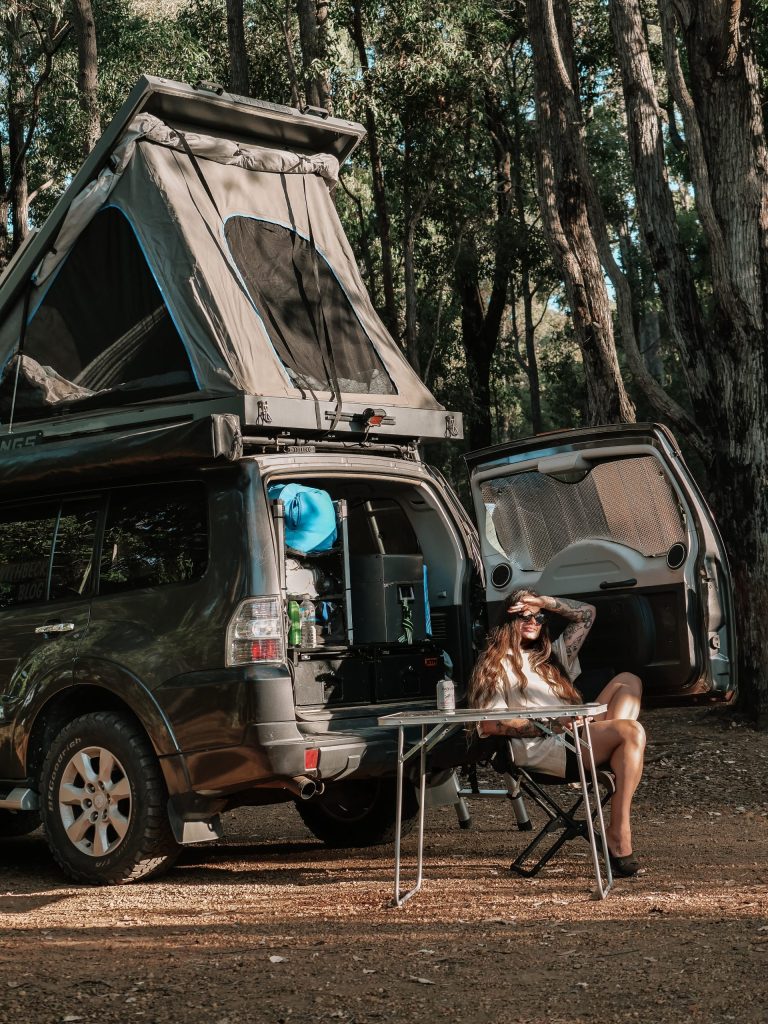
Why is Stealth Camping Illegal in Australia?
In short, it is not realistic for every traveller to stealth camp. Especially because Australia has millions of international travellers a year. It is also illegal to help stop littering and protect the local communities.
What happens if you get Caught?
If you get caught you will get asked to move on and issued a fine. Keep in mind these fines can be anywhere from $100 AUD to $10 000 AUD. This is if you get caught. You might get lucky and just get told to move on without a fine, but this will depend on who catches you.
It’s always best to check council and state laws before attempting to stealth camp.
Best Tips to Stealth Camp – If you choose to
If you are going to attempt or choose to stealth camp, I do have a few tips to help you.
Vehicle
First of all the vehicle you are using to travel around Australia with will greatly impact whether stealth camping is even an option for you. The only way to stealth camp in Australia is a van or car. This van or car has to be discrete. This mean no vans like juicy, apollo, britz etc, anything that has markings that tells is is a campervan and not a regular van.
If your van or car has a rooftop tent, I would not even bother trying to stealth camp. The only way you can get away with this type of vehicle is if you are sleeping in a driveway of a person’s house. As I have a rooftop tent, I have camped in driveways before and never had a problem. This is because the owner of the residence has given me permission, usually a friend or family member. From my knowledge the authorities cannot ask you to move on or fine you if you are actually parked on a residence or private property.
Where to Avoid Stealth Camping
- Parking lots: Although parking at a shopping centre may seem like a good idea. These are usually empty after the shops close which means you are more likely to have your vehicle checked.
- Beach parking: Seems like the perfect spot to camp right? Wrong, these spots are checked often and it isn’t worth the risk. Unless it is in a very rural spot and not a national park.
- National parks: There are always rangers patrolling these areas, plus there is usually cheap camping anyways.
- Residential areas: I am not one for parking in front of someone house, I think it’s slightly disrespectful and will draw attention to yourself. If you are going to stealth camp in residential areas, I would choose either a area which has street parking and plenty of cars already on the street. Don’t park in a quiet back street or neighbourhood because you are very likely to bring attention to yourself.
Tips for Stealth Camping
- Clean up after yourself: Always take your rubbish with you no matter what. This doesn’t just apply for stealth camping this applies for any campsite.
- Arrive late and leave early: Don’t arrive at midnight, cause that’s obvious. Usually between 6-7pm is a good time and make sure you have left by 7am or earlier.
- Don’t stay for too long: I wouldn’t spend more than a day in one spot.
- Ask for permission: If you are parking in front of a business or residence, ask them if it’s okay if you park there for the night. This does not make it legal but it does limit the risk of you being caught.
- Look for signs: If you stumble across a parking lot which has a “no camping” or “no parking” sign – move on, don’t risk it.
- Be discrete: Don’t cook outside your vehicle or set up camp chairs, try not to leave your vehicle if possible. Simply try not to draw attention to yourself.
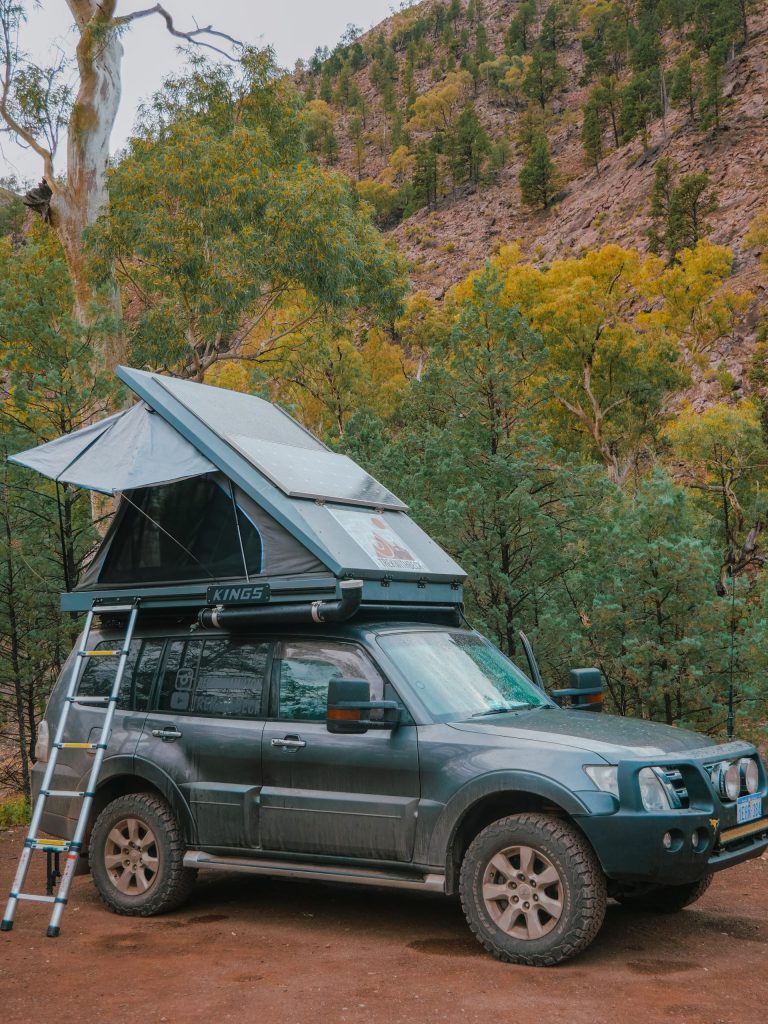
Do I think you should Stealth Camp?
This is a yes and no answer. I don’t think you should if you have other options. However, if you can’t find a rest stop or campsite or are lost and need to park up for one night, sure.
In saying this, there are heaps of rest stops (free) just outside all of the major cities in Australia and if you plan on spending a few nights in a major cities, I’d just book a campsite.
Other things to note about Stealth Camping
- Although it is fairly safe to camp and travel in Australia, I would check the area you plan on staying in. Break ins do occur in major cities and rural towns around Australia. This will be terrifying if you are in the vehicle.
- It can be a very anxious experience. You might have an extremely restless sleep, because you will most likely be worried about being caught.
- You may get strangers looking into your car while you are in there. This includes shining lights or taking photos of your license plate. If you want to avoid them being able to look into your car, I’d get curtains or tinted windows.
- No everyone is going to polite. Do not be shocked if you get strangers yelling at you to move on. To be honest, I’ve had people get mad at me for sitting with my chairs out at a beach car park eating my dinner – when I wasn’t even staying there, just wanted dinner with a view!
Like this post? Pin it and share it with others!
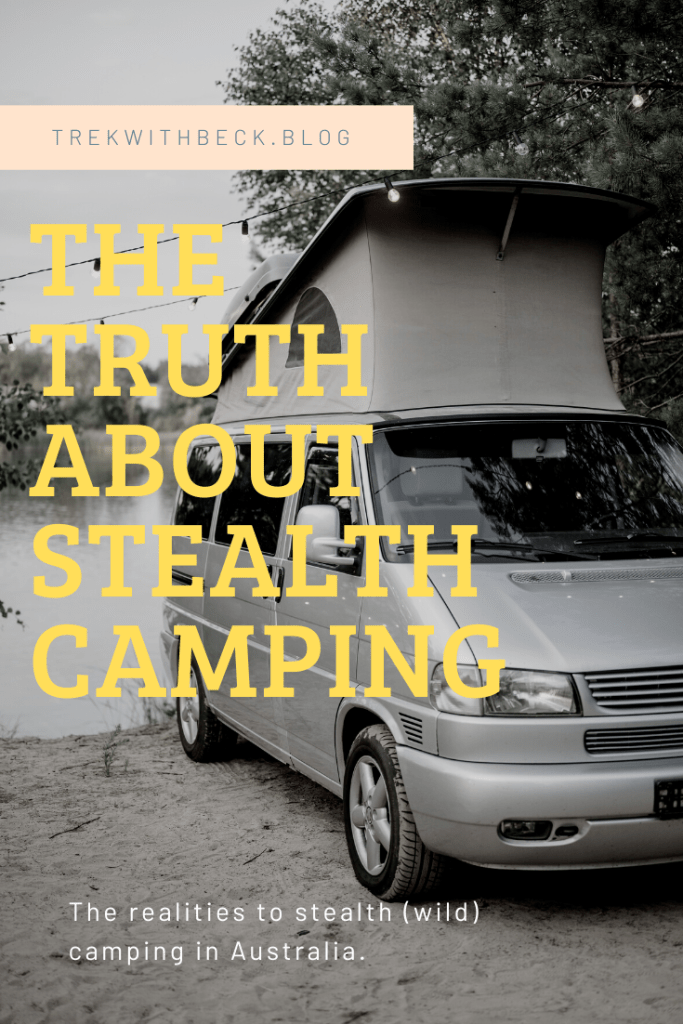

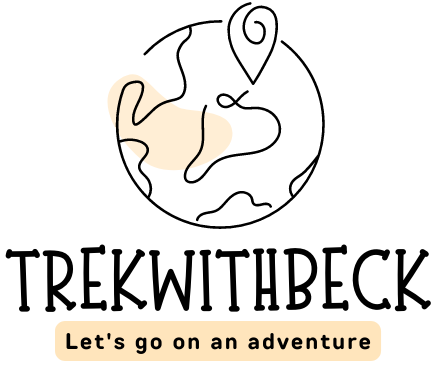



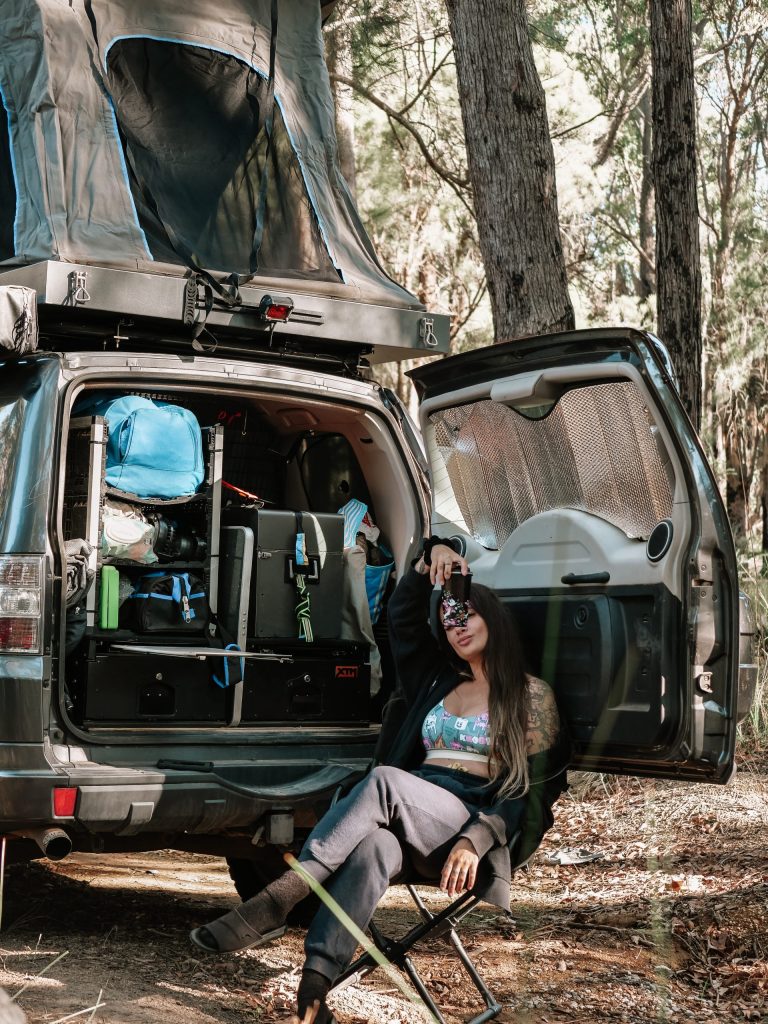
Comments (2)
What Is Stealth Camping? – Campodium
16th June 2023 at 8:41 am
[…] Is Stealth Camping? Stealth camping is an alternative outdoor experience. It means camping in areas without official permission. […]
Chris
24th June 2023 at 7:21 pm
Stealth camping in a rooftop I have done for the last few years in Australia, mostly solo, without problems. I love it ! I’ve stealth camped with my rooftop tent in many places – mountains, national parks, fire trails, state forests. I totally agree with you that the most important thing for people interested in rooftop stealthing is be subtle – don’t put your tent up till after hours. Rangers don’t work late, and are usally gone when it’s dark. Get up early, and move on. That’s the beauty of a rooftop tent, so take advantage of the easy setup and take down. Keeping a Minimal setup in daylight means you can just say you are hanging out under your awning, making dinner, or swimming in a nearby stream. No laws against that 🙂 I usually try to find a spot away from any main trails. Don’t bush bash though, Be respectful of where you are, make no impact, take your rubbish with you. If you have a fire, use a portable self-contained one to keep it small (if it’s windy, don’t bother, the risk is too great) and bury your ashes in the morning after dousing them. Don’t think fruit peels etc are compost and can be thrown in the bush – pack all your rubbish out. Treat the bush and wildlife as it is – sacred. My personal belief is that we should be free to camp where we want. Wild and free. Why can’t we gain permits for being responsible campers that give us immunity and ability to camp in the wild ? 🙂